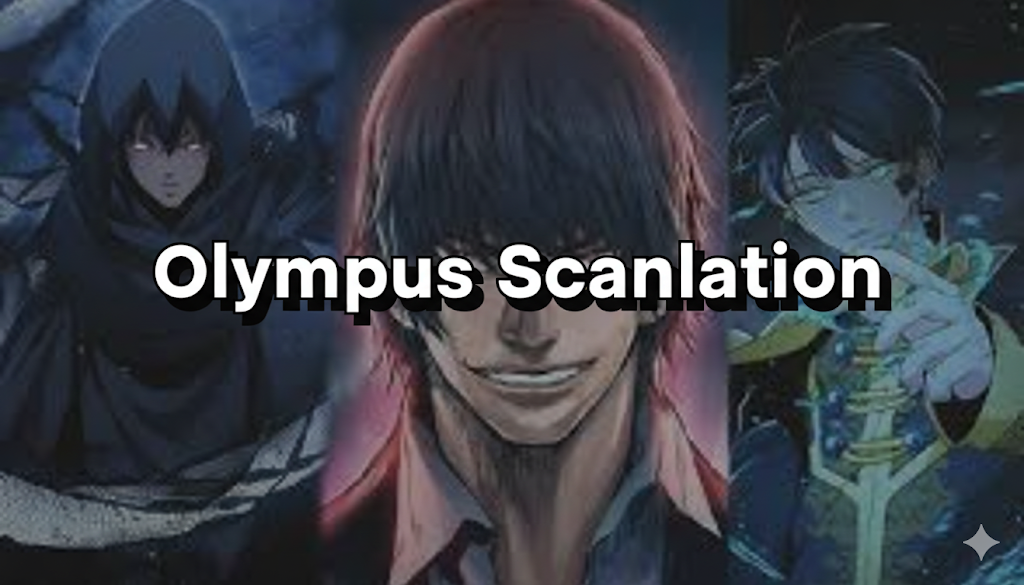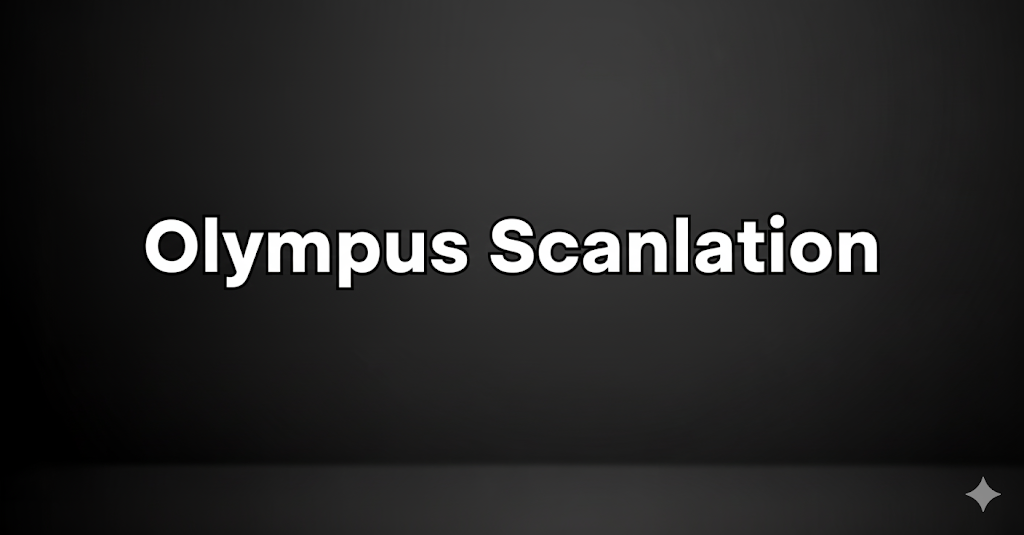Olympus Scanlation Another Excellent Manga Translation Group – Olympus Scanlations. This article unpacks how they work, what sets them apart, and why you should care.
Introduction
Olympus Scanlation is not an official publisher. It’s a fan group that translates manga and Manawa into English for those who don’t have access to official versions. They sell nothing, they don’t advertise, and they don’t try to compete with publishers. Rather, what they do is share tales that would never escape Japan. That’s what sets them apart in an industry where there are a thousand escalation groups blooming and dying every year.
What Olympus Scanlation Actually Does

At the mention of “scanlation,” most readers think of pirated copies, or lousy scans with bad reproduction and translation. Olympus works differently. It’s a volunteer team of translators, editors, and cleaners who meticulously complete every step of the process themselves. They begin with the raw pages of a manga, strip out the original Japanese text, clean up any artwork problems, translate the script, and finally put in dialogue that appears to be native to the art.
This process takes time. Every chapter is read by many people before it’s published online. Olympus has developed a reputation for understanding exactly what it is that you want and spending its time to deliver detail rather than trying to fast-track things. They’re ready when they’re ready, not rushing to get a new release out the door and certainly not fighting for first place. They’re about accuracy and attitude.
How the Process Works
Every project begins with selecting a manga that has yet to be officially licensed. Olympus doesn’t tend to mess with the mainstream or widely liked stuff. They select stories that would never get an English release. Once they do, volunteers collect the raw pages from physical or digital copies. Then the technical work begins.
Cleaners erase text, clean up backgrounds, and correct imperfections. They translate it line by line, endeavoring to make the script accessible while retaining tone and context. Edit: Editors make the translation more readable. Proofreaders read the entire chapter at a time to seek out grammar issues or any missing lines. There are typesetters to manage fonts and bubble placement, making it all look professional.
The end result is a version that seems near professional quality. And unlike some groups that post with errors or awkward phrasing, Olympus has checked its work multiple times before sharing it with readers.
The Moral Face of Olympus Scanlation
There’s always been a question looming over scanlation: is it legal? No, not really: Olympus Scanlation operates in the same gray zone that all such groups do. Here, we will look at members of the press who do not hold the copyright but have received official permission. But they run according to a kind of self-imposed code that sets them apart.
They aren’t paid for their work. No ads, no donations, and no Patreon accounts. Everything they do is volunteer-based. They also take down their projects if a manga is licensed in English or another language. From that practice, it’s evident that they respect the rights of the creators. Imperfect as it may be, that’s how they are trying to put a line between fan activity and piracy.
They also urge readers to purchase official copies when they are released. For Olympus, the scanlation is not a replacement for the real deal. It’s a tool to make stories public until the industry catches up.
What Makes Olympus Stand Out
A lot of groups like to say “Ohhh buttt we wantt QUALITTYY!” or something (coughspeedyhunter-and-scanland), well, Olympus is one of the few groups that actually carries Kwalitee. Their translations read like their authors’ native languages, their editing is flawless, and their design work seems professional. You get the sense that they take their time with every release.
They also forge relationships with readers. Olympus is not just a bunch of faceless people behind websites. They employ the forums and community chats used by fans to leave comments, make suggestions and volunteer. Readers sometimes even vote on which series they want translated next. It is that kind of engagement that keeps people interested and Olympus remaining connected to the community it serves.
Their material choice is another way they differ. They tend to gravitate toward underrated or hard-to-find titles. Olympus, instead of piling on top sellers as other groups do, selects works with smaller followings that still merit attention. This is part of the reason to achieve more diverse voices and genres in prominence.
Challenges They Face
Olympus isn’t immune to issues, despite its sterling reputation. The legal risk always exists. A publisher can challenge or send a warning at any time. As that happens, Olympus must halt or cut chapters. Which is to say it can all vanish overnight.
There’s also burnout. Since everyone volunteers, scheduling and motivation are difficult. Translating manga is meticulous work that moves slowly, taking hours to caption each page. People come, people go, members change, and so does discipline, possibly.
Accuracy is another challenge. Even good translators argue over how to render tone or cultural references. Olympus does a good job of staying true to the source, despite some of the message being lost in translation. That’s unavoidable in any translation.
Comparison with Other Scanlation Groups
Compared to other scanlation groups, Olympus emulation is near regimented in its functioning. Some groups care more about speed than precision. They release new chapters the instant they are online, at which point they tend to be rife with mistakes or sloppy wording. Olympus takes the opposite approach. They come out more slowly, but there is a sense of polish and completion to their work.
Some organizations use ads or contributions to remain operative. Olympus doesn’t do that. They’re a stickler about everything being free and non-commercial. That has kept them from financially motivated activity that could land them in legal trouble.
Another crucial divergence is what happens on the back end, when a title actually gets licensed. Continue reading the main story. Olympus shuts it down right away, while other groups commonly keep shipping it illegally. That one little action distinguishes them and inspires respect in the fan translation community.
Why Olympus Matters
Scanlation is the only way to read many manga for readers around the world. Official translations don’t cover everything. Publishers choose titles because of marketability, not whether they tell a good story. Olympus fills that gap.
They grant fans entry into series that would otherwise languish in Japan forever. They preserve niche genres, like historical romance or relatively obscure fantasy. They also point new fans to hidden gems.
And they’re about more than reading comfort. Olympus has constructed a learning environment for those interested in translation, editing, and digital design. A former volunteer of scanlation groups often becomes a professional member of the publishing industry. So, in a sense, Olympus is also helping to train the next cadre of translators and editors.
Common FAQs About Olympus Scanlation
What is Olympus Scanlation?
It’s a fan group that translates and edits manga for readers who don’t have access to official releases. All that they do is volunteer and non-commercial.
Is Olympus Scanlation legal?
Not technically. They have not obtained the permission of copyright holders. But they seek to limit the harm by taking down content once official translations become available.
Can anyone join Olympus Scanlation?
Yes, they often welcome volunteers. People can apply for positions such as translator, proofreader, typesetter, or cleaner. They have training and mentors for new members.
Why did Olympus discontinue licensed manga?
They believe in supporting creators. After a title receives an official release, Olympus doesn’t want to compete with it or hurt the sales of that title.
Does Olympus receive money for translations?
No. They don’t run ads, ask for donations, or sell their work. All of the work is volunteer.
Conclusion
Olympus Scanlation is one of the more decent players in the fan translation world. They’re not replacing publishers or making a profit. Their mission is a simple but powerful one — to have manga be accessible to fans from all over the world, while retaining respect for the work of the creators.
Although it is unclear whether their actions are legal, the ethical manner in which they operate gives them a great deal of credibility. The group’s meticulous process, rare emphasis on less popular titles, and commitment to clean, precise work have helped win it a small but loyal following. In a world of rough-and-ready releases, Olympus is something more considered.

